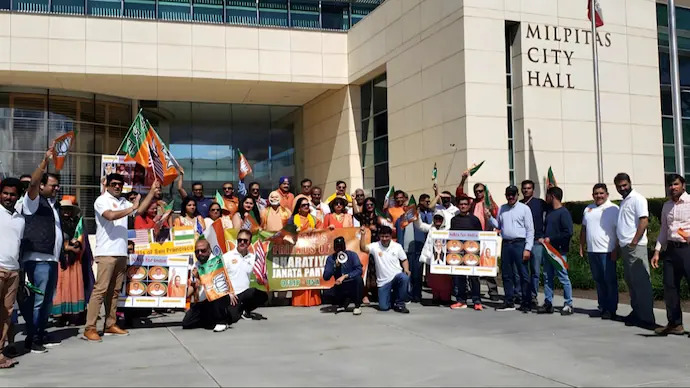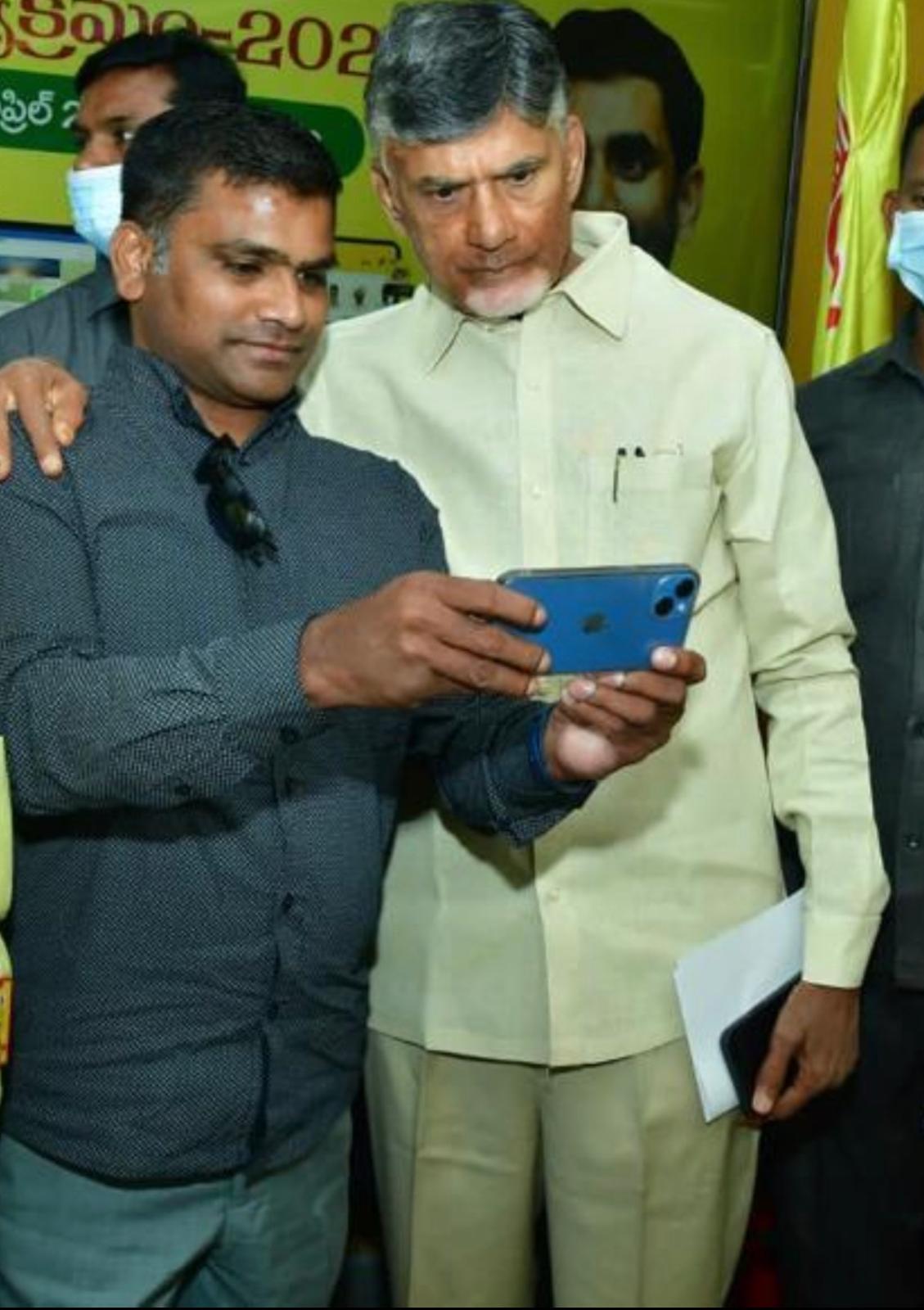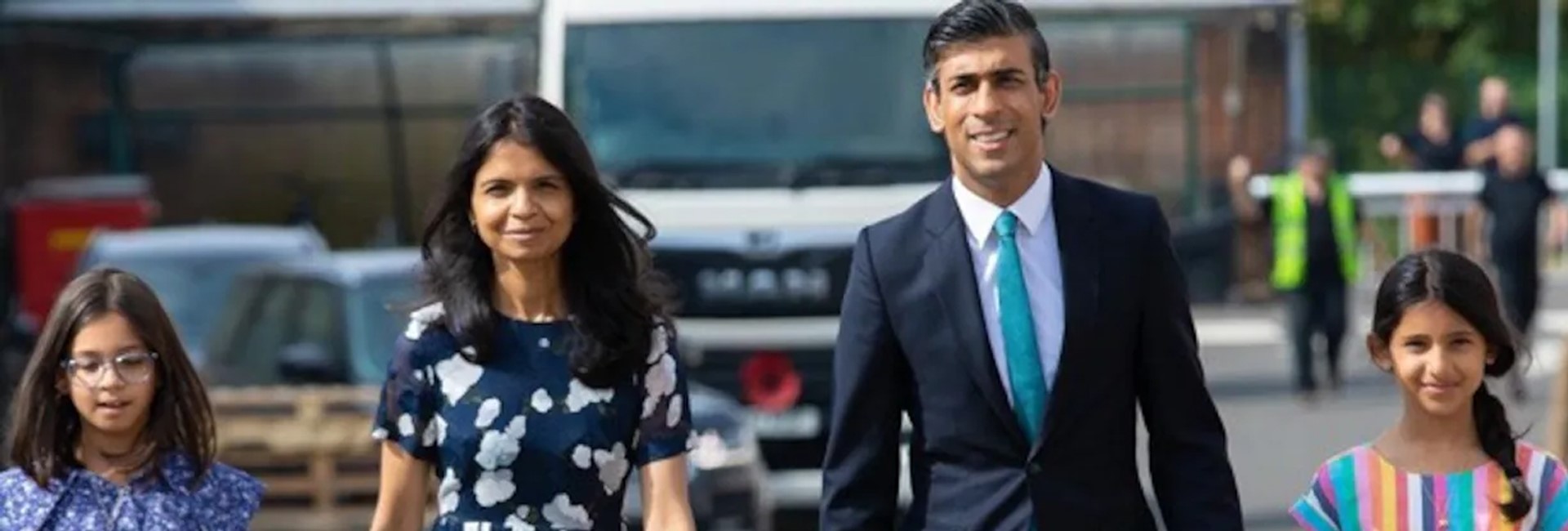(May 10, 2024) From Hong Kong to the US, Netherlands to UAE — Mahesh Murthy has led a comfortable life overseas for the last 15 years. He can live in any part of the world he chooses, but his heart beats for India. So much so that, in order to fulfil his responsibility towards the motherland, the NRI has put his work on hold to travel to India and be part of the world’s biggest festival of democracy.
Murthy is among the thousands of NRIs who have arrived in India over the last one month, specifically to cast their vote in the ensuing 2024 Lok Sabha elections. Known as ‘overseas electors’, this is the first time that 118,000 overseas Indians have registered to vote, a majority from the South Indian states, marking a 65 per cent surge from the previous general election in 2019. Of this, about 11 per cent are women. Until 2010, the NRIs were not eligible to vote in Indian elections. The same year, the government amended the Representation of the People Act, 1950, allowing NRIs – Indians who have lived abroad for over six months, to vote.

Mahesh Murthy
“I firmly believe that health care, food, education, infrastructure, technology and regulations that allow ease of doing business should be the top priorities for any political party contesting the elections,” says Murthy, in conversation with Global Indian. He is eagerly waiting for May 13, the day he would cast his vote in a polling booth in Hyderabad.
Based in Dubai for the last two years, Murthy runs an ad agency and is an investor in many companies, including one in Hyderabad that builds satellites and space tech solutions. “The Government’s role is solely to create the conditions and environment for its citizens to live up to their fullest potential,” says Murthy, who will have voted in four elections so far, including 2024 and travelled from overseas to vote in two of them. “Voting to me is exercising my right to help select my representative in the country,” says Murthy, who was born and brought up in Hyderabad.
The figures say it all
A state-wise analysis of data from the Election Commission of India reveals that 74.9 per cent of NRIs, who registered to vote this time, are from Kerala. Andhra Pradesh comes next at 6.4 per cent followed by Maharashtra at 4.7 percent, Tamil Nadu and Telangana at 2.9 per cent each.

Photo for representation only
There are over three crore Indians currently settled abroad. Of this, close to 1.35 crore are NRIs while the remaining are Persons of Indian Origin (PIO). While an NRI is an Indian citizen residing abroad for employment (and has lived abroad for more than six months), business or other reasons and holds an Indian passport, PIOs have Indian ancestry but possess a foreign passport and are not Indian citizens. India has the biggest diaspora in the world followed by Mexico, Russia and China.
Australia to AP
Like Mahesh Murthy, another overseas elector, Maruthi Prakash Surapaneni, travelled all the way from Melbourne, Australia to exercise his franchise. “As a responsible Indian, I want my state and country to grow in all spheres, especially investments, job opportunities and better infrastructure,” says Prakash, who belongs to Andhra Pradesh, where he will be voting on May 13. In Andhra Pradesh, both Assembly and Lok Sabha polls are being held simultaneously.
Like most politically aware overseas Indians, Maruthi Prakash keeps himself updated on the developments concerning his state and New Delhi as well, every single day. He is someone who closely analyses the performance of both the state and central governments. “I will be doing my bit in selecting good and capable leaders,” says Prakash, who came to India to vote for the first time since residing in Australia. He owns a restaurant and is also involved in the real estate business in Melbourne, where he settled down more than two decades ago.
In the last month, over 1500 NRIs have arrived in Andhra Pradesh alone. More are expected to arrive before May 13. Some are even campaigning for their favourite leaders.

Maruthi Prakash Surapaneni
But why are NRIs coming to India to vote in large numbers this time?
One of the key reasons is India’s foreign policy, says political analyst Rajalakshmi Joshi. “The Indian diaspora is looking keenly at the elections due to the foreign policies of the Narendra Modi government, which has a massive impact on Indians across the globe, especially considering the migration policies in their respective countries of residence,” she points out.
Joshi says the outcome of these elections will determine India’s role in addressing regional and global challenges, something that the diaspora has recognised. “The Prime Minister’s consistent outreach to the Indian diaspora worldwide has been a noteworthy feature of his foreign policy.”
Over the past decade, Modi has addressed tens of thousands of people of Indian origin in Australia, the US, the UAE, Japan and elsewhere. People have taken out numerous rallies, marathons, walks in support of Modi in various cities of the US, UK, Germany, Philippines, UAE among others. Moreover, India has deepened its trade relations with various countries, including the US and Russia.
Congress leader Rahul Gandhi has also been on several visits to universities, and delivered much-publicised talks. “Both major political parties have realised that their connect with the NRIs is vital to their support,” says the political analyst.
Therefore, NRIs from both sides of the divide are queuing up to make their contribution this time. “That the Indian diaspora has woken up to the power of their vote can be gauged by the fact that the number of overseas electors is increasing with every election since 2014, and has seen a ten-fold rise in 10 years,” adds Joshi.

Maruthi Prakash with AP’s Leader of the Opposition, Chandrababu Naidu
Will NRI votes have an impact on Indian elections?
“Their votes could impact some seats with a close margin. In tightly fought elections, every vote counts,” says Joshi. However, not all NRIs who register actually turn up for voting. In the 2014 general elections, over 11,800 NRIs registered to vote, but less than one percent actually turned up. Similarly, in 2019, as many as 99,807 NRIs registered to vote of which only 25,000 flew down to exercise their franchise. However, 2024 is is expected to see the highest number of NRI voters so far..
Procedure for NRIs
The overseas Indians need to fill out Form 6A to enrol as an elector, which is available on the Election Commission of India’s website.
As per ECI, an overseas elector is a person who is a citizen of India and who has not acquired citizenship of any other country and is otherwise eligible to be registered as a voter and who is absenting from his place of ordinary residence in India owing to employment, education or otherwise is eligible to be registered as a voter in the constituency in which his place of residence in India as mentioned in his passport is located.
Read a similar story of foreign degrees matter to ‘desi’ politicos.




